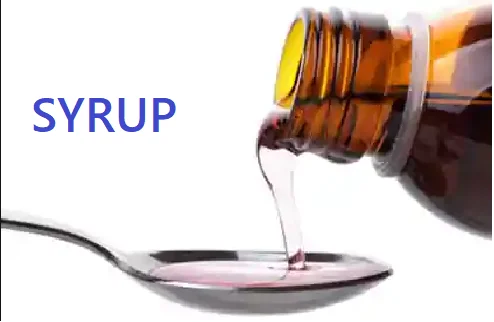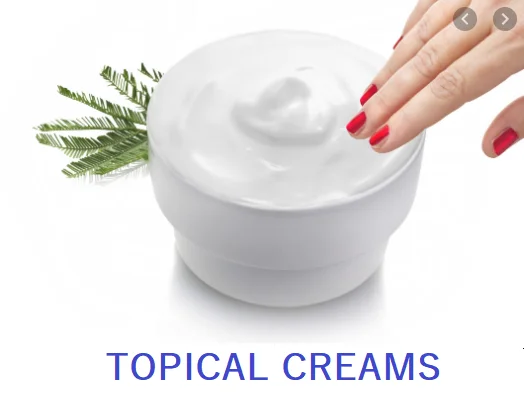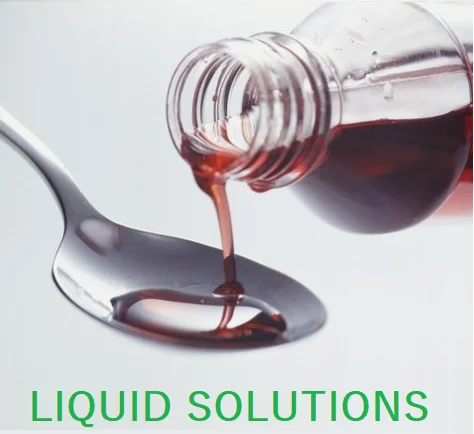MFR of Cyproheptadine HCl Syrup
PURPOSE: This Master Formula Record (MFR) is written to describe the formulae, manufacturing procedure, specifications, packing details of dosage form.
SCOPE: This MFR is performed and is applied during the manufacturing of dosage form.
RESPONSIBILITY / ACCOUNTABILITY: It is the responsibility of Manufacturing Chemist to follow and adhere to this SOP. The Production Pharmacist, QC/QA Manager are accountable for the strict adherence to the master
COPY ISSUED TO:
- Master Copy: Manager Quality Assurance
- Copy No. 1: Production Pharmacist
- Copy No. 2: Manager Quality Control
- Copy No. 3: Liquid Section

| PRODUCT NAME: Cyproheptadine HCl Syrup | BATCH SIZE: 1000 LTRS. |
| PRODUCT REFERENCE CODE: | UNIT SIZE: 100 ml |
| GENERIC NAME: N.A. | PACK SIZE: 42 x 100 ml |
| DOSAGE FORM: SYRUP | STRENGTH: N.A. |
| DEPARTMENT: LIQUID DEPARTMENT | EXPIRY DATE: AFTER 36 MONTHS FROM THE DATE OF MANUFACTURING |
COMPOSITION:
Each 5 ml contains:
Cyproheptadine HCl B.P. 2 mg
EQUIPMENTS TO BE USED:
| SR. NO. | NAME OF EQUIPMENT | ASSEMBLING AS PER SOP NO. | CLEANING AS PER SOP NO. |
| 1 | Sugar Syrup Manufacturing Tank | ||
| 2 | Sugar Storage Tank | ||
| 3 | Charging Tank – 1000 Ltrs. | ||
| 4 | Filter Press | ||
| 5 | Storage Tank – 1000 Ltrs | ||
| 6 | Linear Bottle Washing Machine | ||
| 7 | Digipack Bottle Filling And Sealing Machine | ||
| 8 | Automatic Bottle Labelling Machine |
RAW MATERIAL:-
| S.NO | INGREDIENTS | STD | Theoretical Quantity Req. | Overages % | Total Quantity Used |
| 1 | ASPARTUM | B.P | 0.100 | 0.100 KGS. | |
| 2 | CITRIC ACID | B.P | 0.900 | 0.900 KGS. | |
| 3 | CYPROHEPTADINE HCL | B.P | 0.400 | 10.00 | 0.440 KGS. |
| 4 | LIQUID GLUCOSE | B.P | 150.000 | 150.000 KGS. | |
| 5 | METHYL PARABEN SODUIM | B.P | 1.000 | 1.000 KGS. | |
| 6 | ORANGE FLAVOUR | F.G | 2.500 | 2.500 LTRS. | |
| 7 | PROPYL PARABEN SODIUM | B.P | 0.250 | 0.250 KGS. | |
| 8 | SPIRIT CLOROFORM | B.P | 18.000 | 18.000 LTRS | |
| 9 | SUNSET YELLOW SUPRA | FCF | 30.000 | 30.000 GMS. | |
| 10 | SUGAR | F.G | 500.000 | 500.000 KGS. |
PACKING MATERIAL:
| S.NO. | NAME OF THE MATERIAL | THEORETICAL QUANTITY REQ. | FOR RECORD | TOTAL QUANTITY USED |
| 1. | 100 ML AMBER BRUTE BTL | 10000.000 | 10000.000 NOS. | |
| 2. | ADHESIVE TAPE ROLL BROWN | 3.000 | 3.000 NOS. | |
| 3. | GUM ACCACIA | 1.00 | 1.00 KGS. | |
| 4. | CORRUGATED BOX | 238.00 | 238.00 NOS. | |
| 5. | PILFER PROOFS CAPS 25 MM | 10000.000 | 10000.000 NOS. | |
| 6. | UNIT CARTON | 10000.000 | 2.000 | 10002.000 NOS. |
| 7. | LABEL | 10238.00 | 3.000 | 10241.00 NOS. |
MANUFACTURING SPECIFICATION:
Average fill of each Bottle is 100 ml.
Volume variation limit allowed in each filled Bottle is 100 ml to 102 ml.
Make up the final volume of the syrup accurately.
Filter the completely charged batch using Filter Press L-21 by operating it as per its SOP.
Transfer the syrup from charging tank L-07 to storage tank L-12 after complete charging of batch.
Mix the batch, Fill the bottles and also perform the primary packing of bottles at temperature not more than 250 C and Relative Humidity not more than 40.
Yield:
Theoretical Yield is 10000 Bottles.
Expected Practical Yield is 10000 + 2% Bottles.
Packing Details:
Wash the bottles on Linear Bottle Washing Machine L-24 and operate it as per its SOP.
Transfer the Syrup from storage tank to Digipack Bottle Filling and Sealing Machine for filling and then sealing of the bottles as per its SOP.
Fill 100 ml syrup in amber glass brute bottle and use 25 mm PP Cap to seal the bottle mouth.
Inspect the each filled and sealed bottle for proper sealing and presence of the foreign particles, if any.
Label every inspected bottle by using the Automatic Bottle Labelling Machine
Pack each filled and sealed bottle in unit carton individually.
Pack 42 unit cartons in specified corrugated box to give a pack size of 42 x 100 ml.
Seal each corrugated box with adhesive tape and label it properly by affixing the specified label.
MANUFACTURING PROCESS:
Preparation of Sugar Syrup:
Take Purified water 160 Ltrs into Stainless Steel Steam Jacketed Sugar Syrup Preparation Tank.
Run the steam into the jacket so as to heat the water.
Add 5000 kgs of sugar into the tank and start stirring by operating the tank .
Heat continuously till the sugar dissolves completely to give uniform Sugar Syrup.
Transfer the prepared Sugar Syrup to Sugar Syrup Storage Tank through transfer pump.
Transfer the 150 kgs Liquid Glucose to the Sugar Syrup Storage Tank and stir it vigoursly for half an hour to dissolve it in the Sugar Syrup completely.
Transfer the prepared Syrup from Sugar Syrup Storage Tank to Charging Tank through transfer pump.
II) Addition of Ingredients into the Charging Tank L-07 while stirring continuously:
Dissolve 1.00 kgs of Methyl Paraben Sodium, 0.250 kgs of Propyl Paraben Sodium in 5.0 Ltrs of Purified water and add to the bulk batch.
Dissolve 0.900 kgs of Citric Acid in 4 Ltrs of Purified water and add to the bulk batch.
Dissolve 0.050 kgs of Aspartum in 2 Ltr of Purified water and add to the bulk batch.
Dissolve 0.440 kgs of Cyproheptadine HCl in 18 LTRS of Spirit Chloroform and add to the bulk batch.
Dissolve 30.0 gms of Sunset Yellow Supra in 2 Ltr of Purified water and add to the bulk batch.
Add 2.500 Ltrs of Orange Flavour to the bulk batch.
Make up the volume with Purified water and mix until homogeneous.
Check the pH of Solution to be in between 4.0 – 4.5.
Filter the batch through Filter Press by operating it as per its SOP and transfer it to the Storage Tank.
Send the sample to Quality Control Department for bulk testing.
IN-PROCESS CONTROLS:
The following in-process controls should be maintained during the processing:
Check Raw materials used for manufacturing purpose are all approved materials and have ‘Released’ labels fixed on it.
All weighed Raw materials should be counter-checked by Manufacturing Chemist. If any discrepancy is noticed, it should be immediately brought to the notice of Production Pharmacist and QC/QA Manager.
Physical characteristics of Raw material like colour, odour, and consistency are checked before compounding.
Final volume should be made as per Standard Operating Procedure using correct dipstick in the Assistant Manufacturing Chemist.
pH of the bulk should be checked and it should be with in specified limits.
Bulk sample should be sent for analysis to Quality Control Department before starting the filling and sealing stage.
The Manufacturing Chemist should check intermittently filled volume at 30 minutes interval and record for the same should be kept in Batch Manufacturing Record.
The net volume should be checked for all the filling nozzles and in no case, net volume should be less than volume claimed on the label.
Limit for Volume Variation: Volume claimed on the label + 2ml
Visual inspection of filled and sealed bottles should be done as per SOP and the record of the same should be kept in the Batch Manufacturing Record.
Suspensions should be filled under constant slow speed stirring to maintain uniformity of contents.
The labels and cartons should be checked thoroughly for proper batch coding.
Intimation should be sent to Quality Control Department for finished product sampling and testing.
After the completion of labelling and packaging, the coded labels and cartons should be accounted for and rejected printed material should be destroyed in the presence of QC/QA Manager. Maintain the destruction of the same in the Batch Manufacturing Record.
It will be ensure that filling or packaging equipment has been properly cleaned.
Filling or packaging of next product should not commence until the IPQA has given the ‘Line Clearance’.
Pharma WhatsApp Groups for Latest Pharma Jobs, Pharma news and Pharma Post





